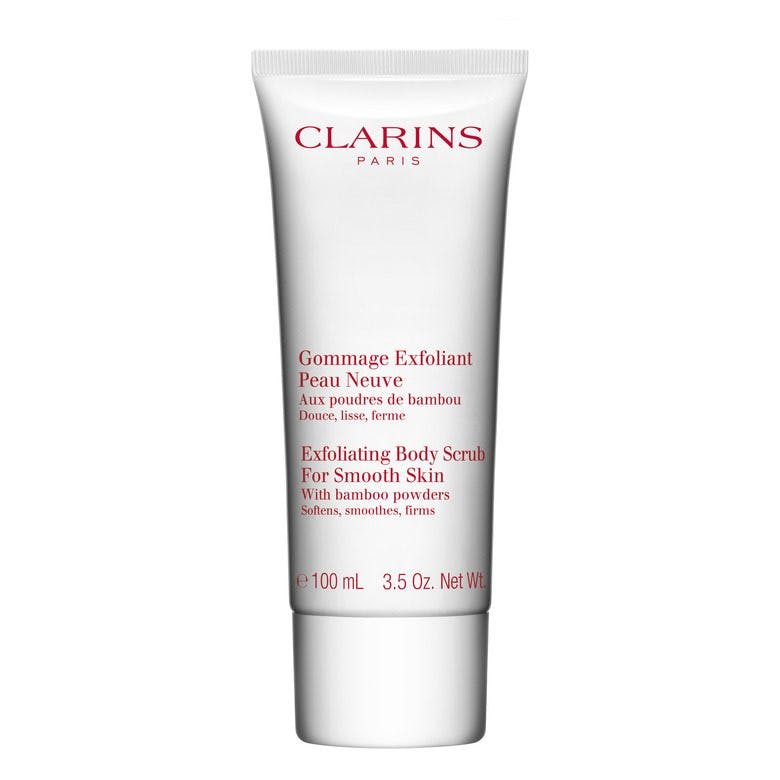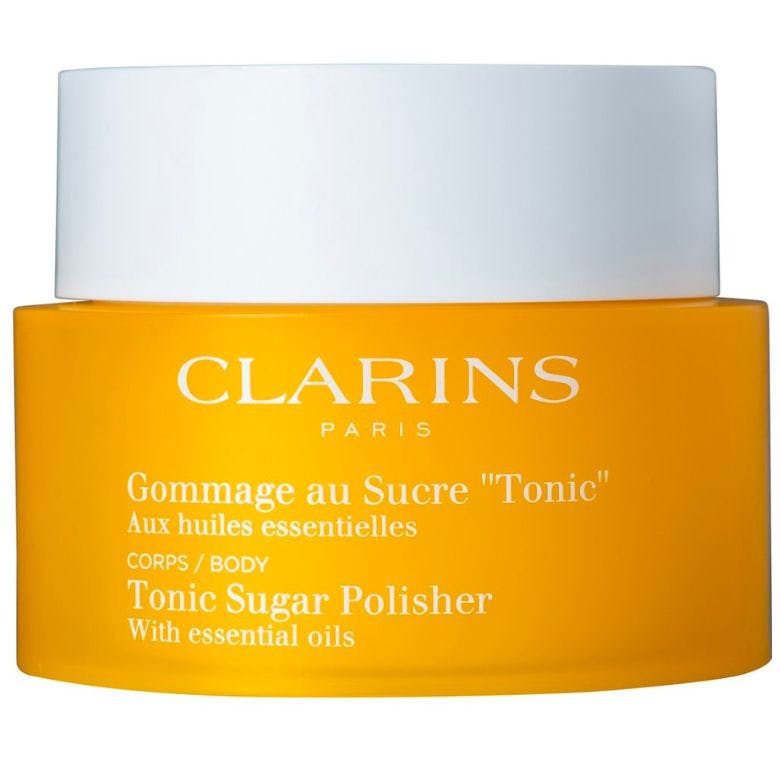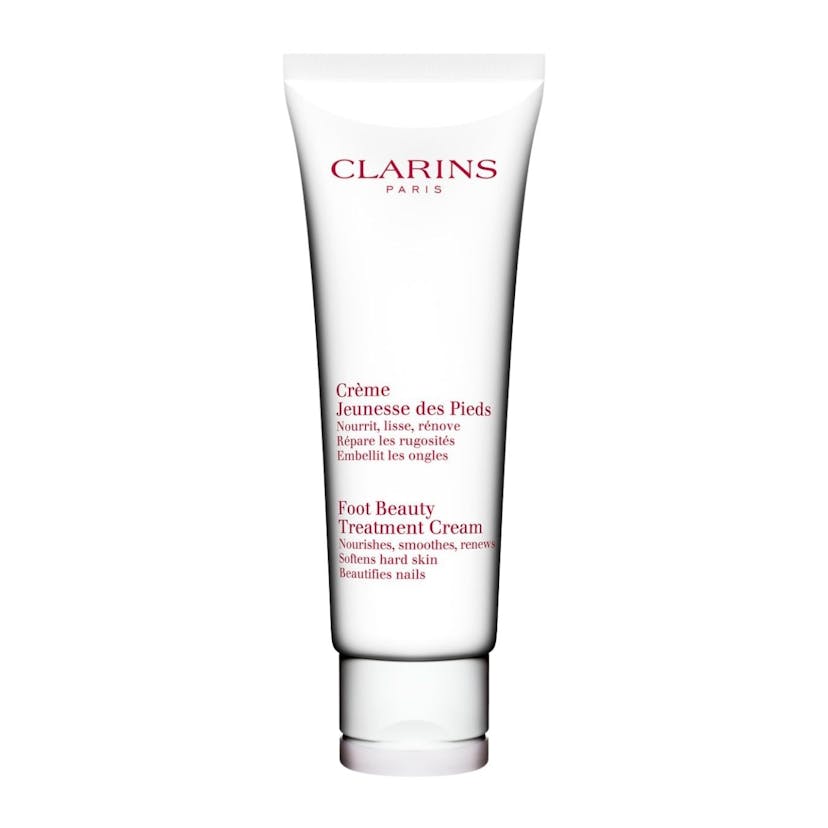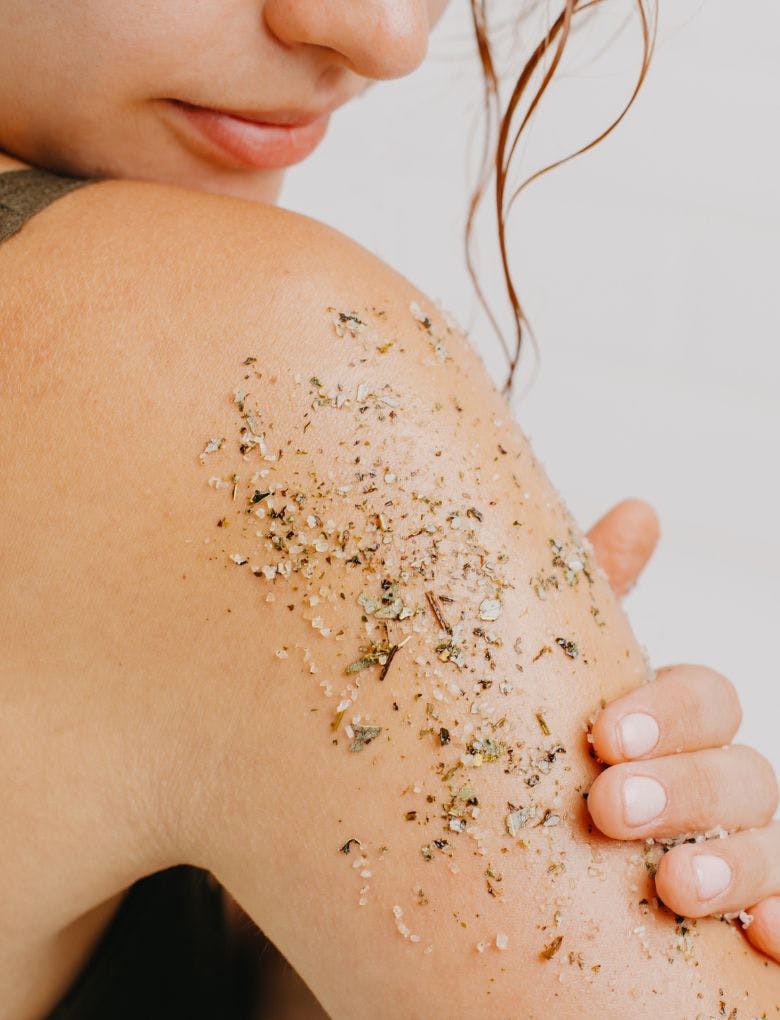The Ultimate Guide To Removing & Exfoliating Dead Skin From Your Whole Body
6 minutes read
We all know that achieving healthy, radiant skin is a key factor when it comes to feeling confident and beautiful. And to achieve this you can’t miss one of the most fundamental steps in any skin care routine – exfoliation – the process of removing the dead skin cells that can make your complexion appear dull and lacklustre.
From arms and legs to torso and feet, Beauty Daily speaks to Clarins Retail Trainer, Julie Unwin, to explore the various tips and tricks needed to effectively remove dead skin from your whole body. Plus, we share the product recommendations you should try for a smoother, more luminous you.
What to use to remove dead skin from your body
When it comes to exfoliating your body, there’s a treasure trove of options. From chemical exfoliants to mechanical tools, finding the right method for your skin type and preferences is essential. “Typically, using scrubs with your hands tends to be the most hygienic way to exfoliate,” shares Unwin. “Loofahs or exfoliating mitts might work great, but they tend to get clogged up with dead skin cells quite quickly,” she adds. This means they need to be replaced regularly, otherwise they become less effective after only a few weeks as well as unsanitary. “I find one of the most effective ways to exfoliate with a scrub is to do so before getting into the shower when your skin is still dry,” Unwin explains. “For ultra-smooth, soft skin, apply the exfoliator in circular motions all over your dry body, then step into the shower to wash it off. Some people may find this too abrasive, but if you have stubborn dry skin that you want to tackle, it can be a game-changer,” she adds.
Clarins Exfoliating Body Scrub, £32

Infused with bamboo powder, this light-but-powerful creamy formula buffs away rough, flaky skin cells to reveal smooth, luminous skin.
Clarins Tonic Sugar Polisher, £35

If you’re more of a bath person, this scrub is for you. It is made from sugar, so it dissolves very easily in water, which means you can exfoliate in the bath without being left sitting in grit. It’s also packed with field mint that works to cleanse and detoxify the skin.
How to remove dead skin naturally
If you’re a fan of natural skincare, you’ll be pleased to know that there are several natural exfoliants that work wonders for your skin. Ingredients like oatmeal, sugar, and coffee grounds can be blended into homemade scrubs to gently slough off dead cells while nourishing your skin at the same time.
Read: How to fix, remove and avoid a bad fake tan
How do you get rid of dry, hard skin?
Our feet are workhorses, and because we’re regularly putting pressure on them, they are prone to hardening, most noticeably on the tops of the toes, balls of the feet and heels too. This is somewhat of a protection mechanism and can work in our favour when it comes to feeling comfortable in our shoes. But, because our feet lack oil glands, dryness is commonplace, this coupled with hardening makes for less than attractive looking tootsies.
Cue, AHAs like glycolic acid. This chemical exfoliant breaks down the bonds between dead skin cells waving bye-bye to dry, hard skin. Best to treat before bed, dose a cotton pad with an AHA packed toner and swipe over anywhere your skin is hard and dry (check the palms of your hands too) then top with a nourishing moisturiser. Put on a pair of socks if you want to be extra generous with your cream and after a few days of performing this nighttime ritual you can expect to wake up with soft, smooth hydrated feet.
How do you get rid of hard skin fast?
To remove a build-up of hard, dry skin use a pumice stone, a foot rasp, or foot file as these effectively slough off dead skin with ease. To get the job done, gently massage your feet with your chosen tool, focusing on areas like the heel and the ball of the foot (especially if you have calluses) where the dead skin is hardest.
Read: The best way to use a body exfoliator to treat dry winter skin
Tips for exfoliation by body part
Arms and legs
For your limbs, consider using a gentle scrub with natural exfoliants like sugar, oats or coffee. And use “circular motions that travel upwards and inwards towards the heart, as this will help stimulate circulation and promote a healthy glow,” advises Unwin.
Torso
The torso deserves just as much attention as any other area, but be gentle. Use a cream-based exfoliator with moisturising properties to nourish the skin while eliminating dead cells.
Chest
Sensitive chest area? Opt for a mild chemical exfoliant like mandelic acid, as its large molecular weight means it penetrates dead skin cells slowly – making it less likely to irritate the skin. Or try a gentle swipe of a muslin cloth.
Stomach
Like for the chest, choose gentle products for the stomach area. A cream-based exfoliator with moisturising properties will help nourish the skin while eliminating dead cells. Be sure to massage in a clockwise motion as this will also help relieve any bloating, tightness or pressure.
Back
Exfoliating your back might be a challenge, but it’s crucial – especially if you’re prone to backne aka acne on your back. If need be, ask a partner for assistance or buy a loofah with a long handle – this will help to remove impurities and dead skin, preventing acne and promoting an even texture.
Feet
Your hands and feet are workhorses, so show them some extra love. Try using a foot scrub followed by Clarins Foot Beauty Treatment Cream, £27, to keep your feet in good condition.

Read: How to remove thick dead skin from your feet
Face
Generally, the skin on your face is thinner than the body, which means when it comes to exfoliating, a targeted, specialised exfoliant is a must. Explore Clarins’ range of face exfoliators to find the perfect match for your skin type and concerns.
Read: How to exfoliate your face whatever your skin type
Use the right products for your skin type
Tailoring your exfoliation routine to your skin type is key to achieving the best results. If you have super dry skin, opt for creamy exfoliants with moisturising properties. Sensitive skin types should look for gentle chemical exfoliants, while those with oily areas can benefit from BHAs to unclog pores. Once you’ve got the right product make sure you’re consistent, because as a rule, “most of the skin on the body dries out a lot quicker than your face. Exfoliating regularly allows your serums and moisturisers to keep skin nourished and hydrated, as they are being applied to new, fresh skin, rather than sitting on top of layers of dull dead cells,” Unwin adds.
Read: 5 tips to make the most of your body wash routine
Tips for keeping dead skin at bay
How often should you exfoliate?
Consistency is key! Regular exfoliation is essential, but don’t overdo it. Aim for two times a week, adjusting based on your skin’s response.
When to stop exfoliating?
If your skin becomes irritated, red, or overly sensitive, it’s time to take a break from exfoliation and focus on soothing, hydrating products.
Read next: How to exfoliate skin by a spa professional
Sign up for our newsletter
We will keep you in the loop for special offers, exclusive gifts and product news.


